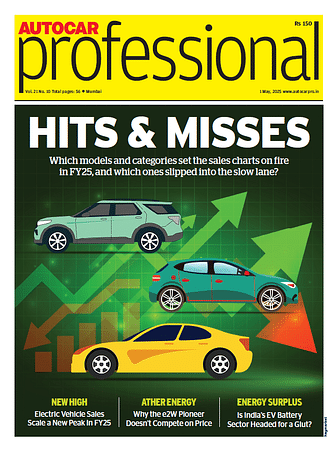SIAM urges government to be tech and fuel neutral, not mandate only EVs
Following Niti Aayog’s EV industry-heavy draft policy, SIAM says reliance on a singular mobility plan would hamper growth of other technologies.
After the Indian government’s think-tank NITI Aayog has come out with its draft proposal to introduce a new mobility policy which has a strong tilt towards electric vehicles (EVs), apex industry body the Society of Indian Automobile Manufacturers (SIAM) has expressed some reservations about the latest road map being worked upon by the Centre.
“India is a democratic country and the government should remain technology and fuel neutral and not mandate any one particular vehicle or fuel technology, as it would seriously hamper the development of other options in the pipeline,” said Sugato Sen, deputy director general, SIAM. He was speaking at a media meet in New Delhi today to announce the April 2017 sales numbers.
“Instead, the government should be setting targets (performance) for the companies to meet and let the auto industry bring in new and different technologies to achieve them,” he added.
SIAM, however, believes that electric mobility is going to lead the charge in the future across the globe, but is confident that the Indian landscape, which comes with its own set of infrastructural challenges and vast geographical dimensions, cannot simply rely on just one kind of vehicle type plying on the roads. It also requires other streams, many of which are being subject to intense research like methanol, to make their way into vehicles.
If India were to anyhow make a switch to EV technology, then SIAM does think that NITI Aayog’s proposed 2032 timeframe of making India fully EV reliant seems realistic, as for one, the Indian automotive sector has already been witnessing hybrid and mild-hybrid vehicles, and second, the pace of the evolution of this technology is going to be extremely speedy, as many places abroad, like the Scandinavian countries, are aiming to attain this tectonic shift, by 2025-2030.
SIAM says it supports the government’s efforts in the area of solar power generation and alongside envisions a clean future for the country, with only the pre-requisite being that all work should be channelised based on a clear directive of achieving certain targets, with complete freedom to chose the path to be undertaken.
Automakers in India, who are gearing up to meet the BS VI emission norms by 2020 with sizeable investments in technology and manufacturing, will be a confused lot.
RELATED ARTICLES
Bajaj Auto launches new Chetak 3503 at Rs 110,000
The Chetak 3503, with a claimed range of 155km, 63kph top speed and a slower charging time than its 35 Series siblings, ...
Hyundai walks the eco talk with biogas plant, material recovery plant in Gurugram
Operational since October 2022, the facility targets sustainable waste management in Gurugram by undertaking scientific ...
Rajiv Bajaj reappointed MD and CEO of Bajaj Auto for five-year term
Bajaj Auto’s Board of Directors has approved the re-appointment of Rajiv Bajaj as the company’s MD and CEO for another f...






 09 May 2017
09 May 2017
 4828 Views
4828 Views





 Autocar Professional Bureau
Autocar Professional Bureau




